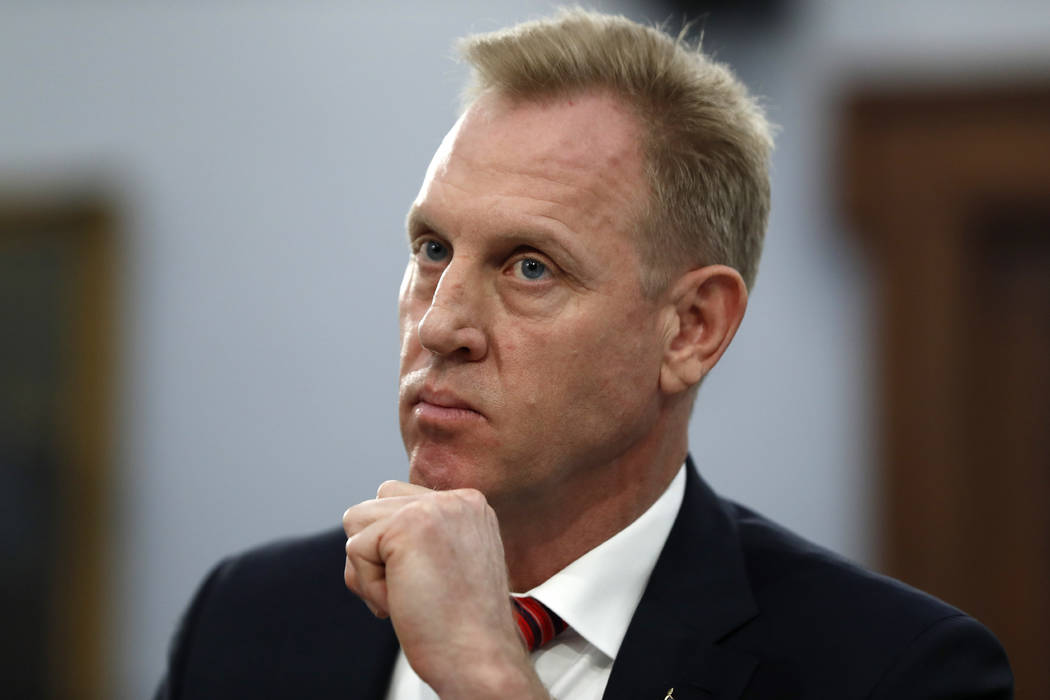US military officials try to talk tough on Venezuela options
WASHINGTON — The commander of U.S. forces in South America briefed top Trump administration officials Friday on the crisis in Venezuela and options for potential military action.
The session highlighted the administration’s effort to suggest the possibility of military action, perhaps as a way of increasing public pressure on President Nicolas Maduro, although there appears to be little likelihood of direct U.S. military intervention.
In an interview with a small group of reporters, Acting Defense Secretary Patrick Shanahan said Navy Adm. Craig Faller, commander of U.S. Southern Command, flew to Washington to meet with him and other senior officials, including Secretary of State Mike Pompeo and John Bolton, President Donald Trump’s national security adviser.
They reviewed and refined military planning and options for responding to the crisis, Shanahan said. He declined to provide details and gave no indication they made decisions to take any military action.
“We have a comprehensive set of options tailored to certain conditions, and I’m just going to leave it at that,” he said. Pressed to say whether the options include direct military intervention, he said, “I’ll leave that to your imagination. All options are on the table.”
Faller’s area of responsibility includes Venezuela, and U.S. air and naval forces in the region are capable of conducting surveillance that could support intelligence collection inside Venezuela. The Trump administration’s emphasis has been on diplomatic and economic pressure to try to compel Maduro to step aside.
Cuba, Russia send troops to prop Maduro up in Venezuela…….while we talk/sanction.
Where is our aircraft carrier?
— Lindsey Graham (@LindseyGrahamSC) May 3, 2019
Sen. Lindsey Graham, a South Carolina Republican, wrote on Twitter, “Where is our aircraft carrier?” Asked to comment on that suggestion, Shanahan told reporters, “All (options) would include all.”
Shanahan said he wanted an update on the situation in light of this week’s developments in which opposition leader Juan Guaidó called for a military uprising two days earlier. The attempted uprising failed to push Venezuela’s military into rebellion but was followed by deadly clashes between protesters and police in cities across the country.
“This was really a true review, and then making sure we’re all in alignment” within the administration, he said.
Asked whether the failed attempt to spark an uprising to oust Maduro suggests faulty U.S. intelligence, Shanahan said, “I feel very confident in the quality and the accuracy of the information that we’re getting.” He added, “I don’t feel like we have an intelligence gap.”
Also attending the Faller briefing were Director of National Intelligence Dan Coats, Acting White House Chief of Staff Mick Mulvaney, and Marine Gen. Joseph Dunford, chairman of the Joint Chiefs of Staff.
At the White House, spokeswoman Sarah Sanders reiterated that “the president’s going to do what is required if necessary,” but did not elaborate.
Shanahan canceled a trip to Europe this week to remain in Washington for meetings on Venezuela.

















